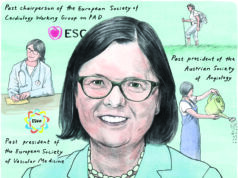
Bayer and its development partner Janssen Pharmaceuticals presented results from two real world studies—the non-interventional XALIA study in patients with deep vein thrombosis (DVT) and a study looking at patients with cancer-associated thrombosis on 8 December 2015. Results from the two studies were presented at the 2015 ASH Annual Meeting, and XALIA findings were also simultaneously published in the Lancet Haematology.
“On average, every 37 seconds someone in the Western world dies from a venous blood clot, so it is important we understand the effectiveness and safety of available treatment options for these potentially life-threatening blood clots in real world patient populations,” said XALIA principal investigator Alexander GG Turpie, McMaster University and Hamilton Health Sciences in Hamilton, Canada. “The real-world insights from XALIA confirm the positive benefit-risk profile of rivaroxaban for the treatment of deep vein thrombosis that was established in the pivotal EINSTEIN DVT study, endorsing that these pivotal data for rivaroxaban can be translated to the patients physicians typically see in everyday clinical practice.”
In the recently initiated CALLISTO Clinical Research Programme Bayer is exploring the potential benefits of rivaroxaban in patients with cancer. The risk of venous thromboembolism is four times higher in patients with active cancer than in people of the same age without cancer, with chemotherapy increasing the risk by up to 6.5 times. Blood clots are the leading cause of death in patients with cancer outside the cancer itself.
“Today, there is limited evidence and guidance on the routine use of anticoagulants for the treatment and prevention of pulmonary embolism and deep vein thrombosis in patients with cancer, despite blood clots being the leading cause of death in patients with cancer outside the cancer itself,” said Annie Young, professor of Nursing, University of Warwick and one of the principal investigators within the CALLISTO programme. “I am optimistic that results from the CALLISTO programme will provide important clinical insights to help reduce the risk of pulmonary embolism and deep vein thrombosis, conditions that can be treated and prevented.”
As part of the CALLISTO programme the Memorial Sloan Kettering Cancer Centre in the USA conducted a Quality Assurance Initiative (QAI) under which a clinical pathway was established to guide the use of rivaroxaban as an alternative to injectable low-molecular-weight heparin for cancer-associated thrombosis. The study tracked a cohort of 200 patients with cancer-associated thrombosis and pulmonary embolism or symptomatic proximal deep vein thrombosis, whose full course of anticoagulation was with rivaroxaban and rates of major bleeding and recurrent venous thromboembolism with rivaroxaban were studied.
Both XALIA and CALLISTO add to the extensive investigation of rivaroxaban, which by the time of its completion, is expected to include more than 275,000 patients in both clinical trials and real world settings.













